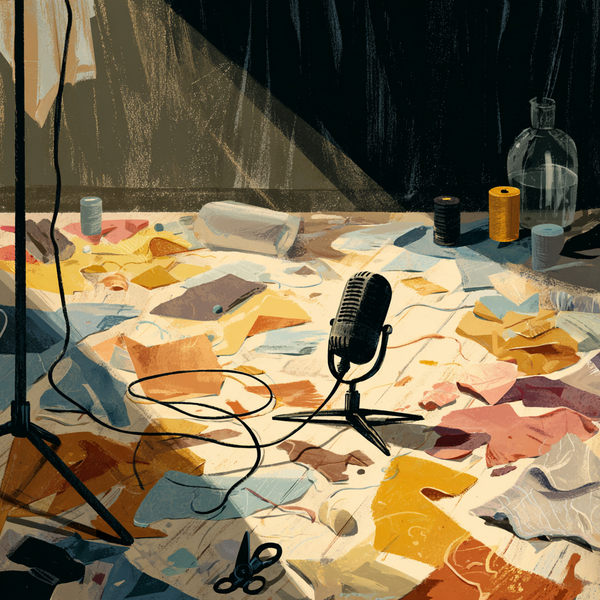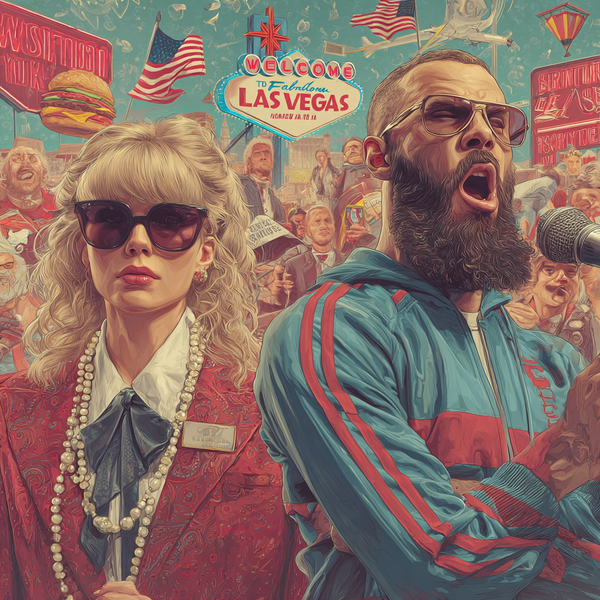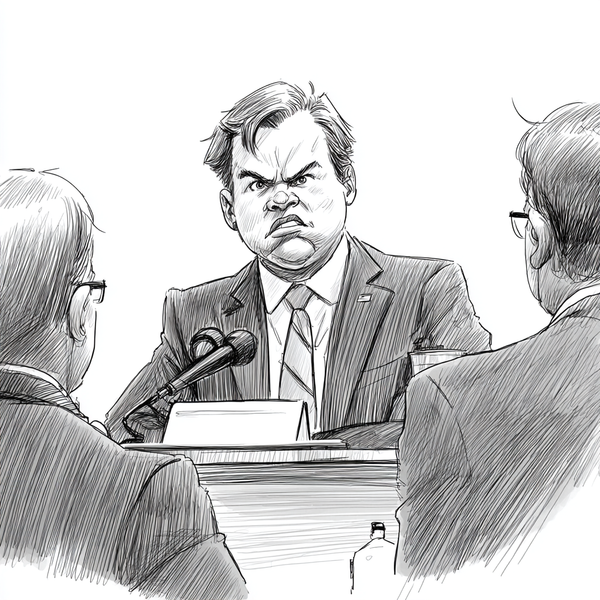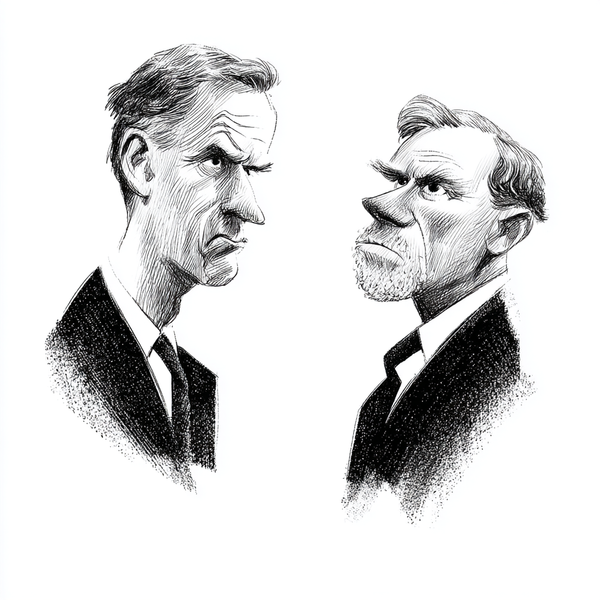The Great Media Neutrality Scam
Why pretending to be objective is the most biased thing you can do.
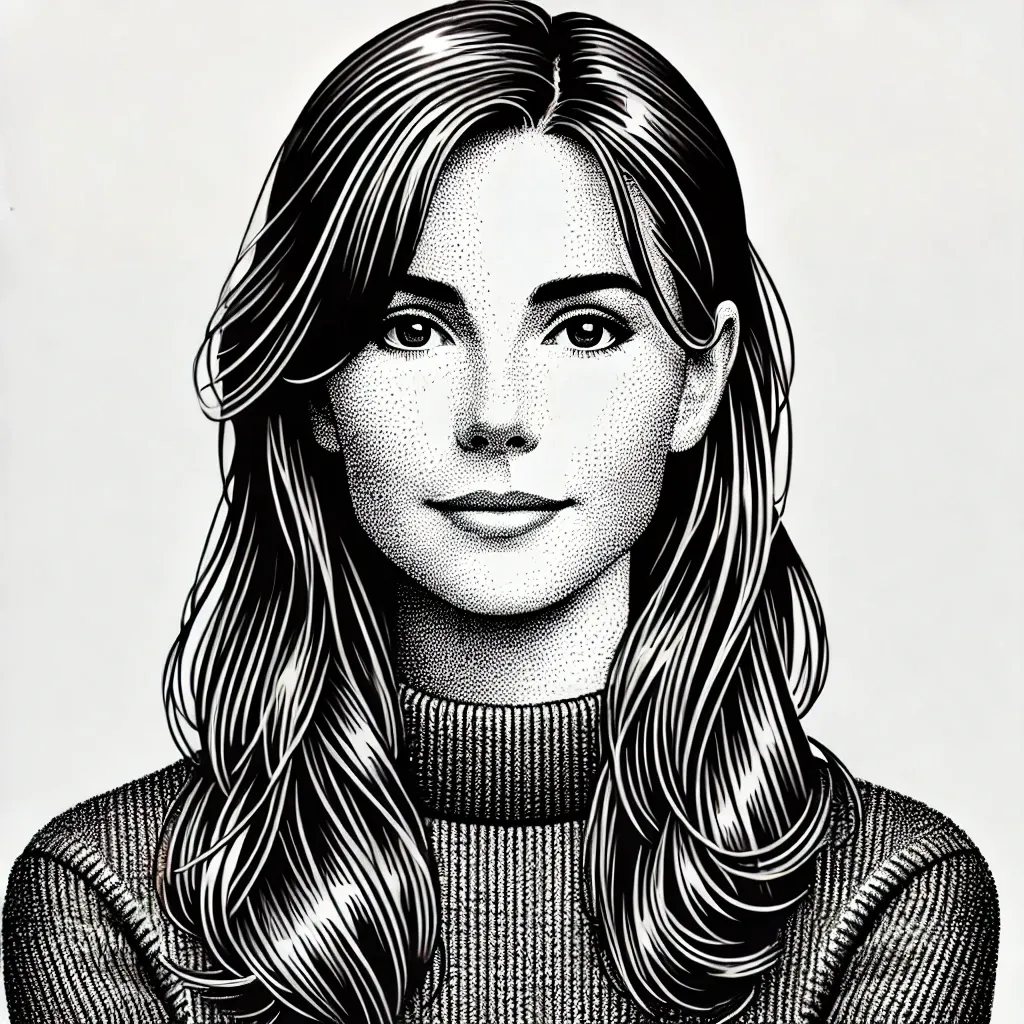
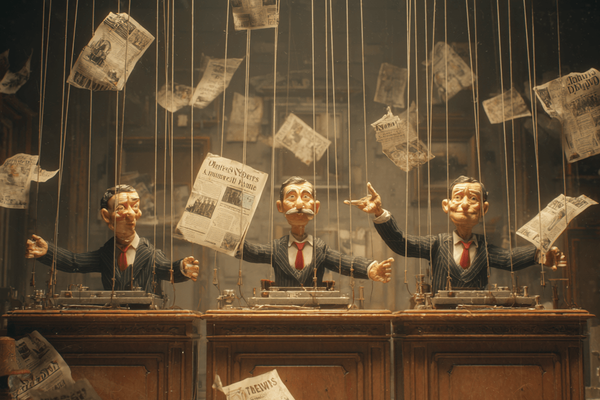
Why pretending to be objective is the most biased thing you can do.

Picture this: Your house is on fire. The local news crew arrives and interviews both you ("My house is burning down! Please help!") and the arsonist ("Actually, I think fire is quite beautiful and this house was ugly anyway"). The anchor then concludes with a straight face: "Well, there are two sides to this story. We'll let you decide."
This is essentially what media "neutrality" looks like in 2025, and honestly? It's more ridiculous than that guy at every party trying to convince everyone that pineapple belongs on pizza while the kitchen is literally smoking behind him.
We're living in what historians will probably call the "Well, Actually" era—a time when actual Nazis march with tiki torches and media outlets still feel compelled to find the "other side" of whether genocide is bad. Meanwhile, journalists clutch their press badges like rosaries, muttering prayers to the gods of "fairness and balance" while democracy burns around them.
The dirty little secret? True neutrality is about as real as unicorns, and twice as useless in a crisis. Every choice a newsroom makes—which stories to cover, which sources to quote, which questions to ask—is inherently political. Pretending otherwise is like someone insisting they don't have a favorite child while slipping one kid an extra twenty every time.
Here's where it gets interesting, and where Karl Marx—that bearded revolutionary who never had to deal with Twitter—actually nailed something crucial about truth-telling. Marxist theory suggests that art and literature often capture historical reality more accurately than supposedly "objective" journalism.
Think about it: We understand the American South's antebellum period better through Gone with the Wind (problematic as it is) and Beloved than through most newspaper archives. Jane Austen's Pride and Prejudice tells us more about class dynamics and women's limited agency in Regency England than a thousand "neutral" society pages ever could. Austen wasn't trying to be objective—she was being honest about what she saw, and that honesty revealed truths that polite society preferred to ignore.
Fiction doesn't pretend to be neutral. It says, "This is how I see the world, and here's why." And somehow, in embracing that subjectivity, it often captures objective reality better than journalism that's terrified of taking a stance.
The irony is delicious: In our post-truth era, fiction continues to tell more truth than "factual" reporting. The Handmaid's Tale predicted our current reproductive rights nightmare better than most political analysis. Black Mirror anticipated our social media hellscape years before Facebook admitted they might have a teensy problem with disinformation.
Meanwhile, "objective" journalism gave us decades of climate change coverage that treated the potential end of human civilization as just another he-said/she-said story. Thanks, neutrality! Really nailed that one.
György Lukács, the Hungarian Marxist literary critic (and clearly a man who never had to worry about Twitter ratios), argued that art should reflect the continuous evolution of humanity toward a more just society. In other words, good storytelling doesn't just describe the world—it helps us imagine how to make it better. Maybe that should be journalism's job too.
Today's media has somehow convinced itself that the height of professionalism is sounding like a robot programmed by a committee of lawyers. God forbid a journalist should express genuine outrage when covering, say, children being caged at the border, or joy when reporting on a medical breakthrough. Heaven knows we can't have actual human emotions contaminating our sacred objectivity!
This emotional sterilization isn't just boring—it's actively harmful. When reporters adopt the same monotone delivery for a school shooting and a celebrity divorce, they're not being professional. They're being cowards. They're so afraid of being accused of bias that they've forgotten their primary job: helping people understand what the hell is happening in the world.
Here's a radical idea that would make journalism professors clutch their tenure papers: What if, instead of pretending to be neutral, journalists were radically honest about their perspectives?
Imagine if journalists adopted this approach. Instead of the fake neutrality dance, what if they said: "I believe democracy is better than fascism, so I'm going to report accordingly"? Or: "I think children shouldn't go hungry in the richest country in history, and that perspective will inform my coverage of food policy"?
This isn't advocacy journalism—it's honest journalism. The difference is crucial. Advocacy journalism starts with a conclusion and works backward. Honest journalism begins with values and follows the evidence wherever it leads, even when it's uncomfortable.
The solution isn't to abandon facts—it's to abandon the pretense that we can report them without perspective. Every human being sees the world through the lens of their experiences, values, and beliefs. Journalists are humans (despite what the comment sections suggest). So let's stop pretending otherwise.
The most honest thing a journalist can do is acknowledge their point of view and then work twice as hard to be fair within that framework. This means:
We're not living in neutral times, and pretending we are is the most biased position of all. When one political party is actively trying to end democracy and the other is... well, let's just say they're not, the "neutral" position isn't neutral—it's complicit.
The media's job isn't to be a mindless stenographer for competing propaganda. It's to help citizens understand their world so they can make informed decisions about their future. And sometimes—actually, most of the time—that requires taking a side.
The side of truth. The side of justice. The side of not letting the house burn down while we interview the arsonist about his artistic vision.
Because at the end of the day, if you're not willing to call a fire a fire, you're not a journalist—you're just someone with a press badge and a really expensive way of saying absolutely nothing.
The author believes that democracy is preferable to fascism, that children shouldn't starve, and that pineapple on pizza is a crime against humanity. These biases may have influenced this piece.
